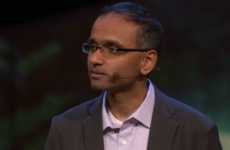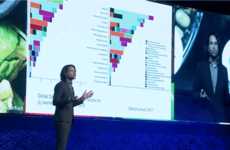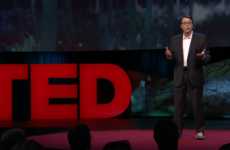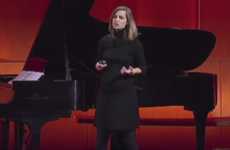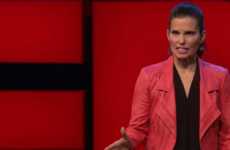
Need Inspiration?
Get inspired by 4,000+ keynote speaker videos & our founder, a top keynote speaker on innovation.
J. Marshall Shepard's Talk on Climate Change Calls for Action
Kalin Ned — December 11, 2018 — Keynote Trends
References: drmarshallshepherd & ted
Dr. J. Marshall Shepherd — a leading international expert in weather and climate, delivers a riveting and entertaining talk on climate change that seeks to pinpoint denial and reinforce the science behind our changing environment. As a meteorologist who has worked over a decade for NASA and as the chair of the Earth Science Advisory Committee at the University of Georgia, his opinion comes from a very highly secure and regarded place.
The qualified speaker begins his talk on climate change with a simple question that he gets asked all the time — if he believes in the reports of global warming. The simple answer that he offers is that "science isn't a belief system." To support this universal statement, Shepherd shares a few facts. For example, the American Association for the Advancement of Science, AAAS, compared the knowledge of scientists to that of the public on certain topics like genetically modified food, animal research, and human evolution. The discrepancy between public and scientific knowledge is quite large in all those areas. In terms of global warming, 87% of scientists believe that humans are contributing to climate change, yet only 50% of the population shares the same view.
Dr. J. Marshall Shepherd ascribes this gap to three factors in his talk on climate change. The first is related to confirmation bias — that is, finding evidence that exclusively supports one's own belief. Secondly, there is the Dunning-Kruger effect which signifies people who think they know more than they do. Finally, there is cognitive dissonance which brings up a mental discomfort to a person who holds two or more contradictory beliefs. Later on, Dr. J. Marshall Shepherd briefly touches upon literacy and misinformation from media sources as well, and how this contributes to the overall public confusion on climate change.
To address these issues, the meteorologist proposes an inward evaluation of self. He advocates for people to take inventory of their biases, determine the origin of the counter-scientific thoughts — from political perspectives to religious beliefs, evaluate sources and engage in conversations. At the end of the day, expanding the radius of our belief system is "not about making a better future, but it's about preserving life as we know it."
The qualified speaker begins his talk on climate change with a simple question that he gets asked all the time — if he believes in the reports of global warming. The simple answer that he offers is that "science isn't a belief system." To support this universal statement, Shepherd shares a few facts. For example, the American Association for the Advancement of Science, AAAS, compared the knowledge of scientists to that of the public on certain topics like genetically modified food, animal research, and human evolution. The discrepancy between public and scientific knowledge is quite large in all those areas. In terms of global warming, 87% of scientists believe that humans are contributing to climate change, yet only 50% of the population shares the same view.
Dr. J. Marshall Shepherd ascribes this gap to three factors in his talk on climate change. The first is related to confirmation bias — that is, finding evidence that exclusively supports one's own belief. Secondly, there is the Dunning-Kruger effect which signifies people who think they know more than they do. Finally, there is cognitive dissonance which brings up a mental discomfort to a person who holds two or more contradictory beliefs. Later on, Dr. J. Marshall Shepherd briefly touches upon literacy and misinformation from media sources as well, and how this contributes to the overall public confusion on climate change.
To address these issues, the meteorologist proposes an inward evaluation of self. He advocates for people to take inventory of their biases, determine the origin of the counter-scientific thoughts — from political perspectives to religious beliefs, evaluate sources and engage in conversations. At the end of the day, expanding the radius of our belief system is "not about making a better future, but it's about preserving life as we know it."
1.4
Score
Popularity
Activity
Freshness



